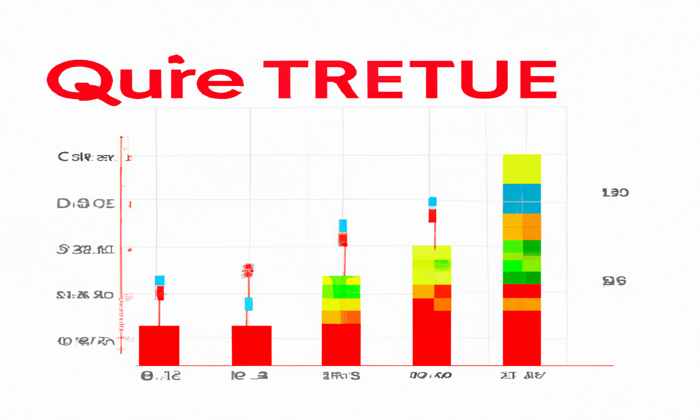The Texas Bitcoin reserve bill has emerged as a groundbreaking proposal in the evolving landscape of Texas cryptocurrency legislation. As state lawmakers push for greater inclusion of digital assets in public finance, this bill could permit the Texas Comptroller to invest up to $250 million in Bitcoin and other cryptocurrencies. The introduction of HB 4258 on March 11 marks a significant step forward, building on the foundations laid by Senate Bill 778, which garnered strong support in the Senate. With interest in Bitcoin investment in Texas surging, these legislative moves signal the Lone Star State’s commitment to integrating innovative financial strategies. As the discussion around HB 4258 heats up, many are eager to see how this could pave the way for broader adoption of cryptocurrencies in governmental finance.
The recent developments surrounding the Bitcoin reserve initiative in Texas highlight a significant shift in public finance and investment strategy. By enabling investments in digital assets, such as Bitcoin, the state illustrates a bold approach towards the future of currency and economic stability. Known formally as HB 4258, this legislative effort empowers Texas’ financial overseers to allocate substantial funds to cryptocurrencies, thus expanding their fiscal portfolio. Following the earlier Senate Bill 778, these initiatives reflect a growing momentum for cryptocurrency within state governance. As municipalities and counties also seek to partake in this digital currency trend, the implications for financial innovation in Texas are vast.
Understanding Texas Bitcoin Reserve Bill HB 4258
The Texas Bitcoin reserve bill HB 4258 represents a significant move toward integrating cryptocurrency into the state’s financial framework. This legislation stipulates that the Texas Comptroller can invest a whopping $250 million from the state’s economic stabilization fund into Bitcoin and other cryptocurrencies. By doing this, Texas aims to place itself at the forefront of Bitcoin investment within the U.S., competing with other states that are also looking to tap into the potential of cryptocurrency. Furthermore, the bill also facilitates local municipalities and counties to allocate up to $10 million in their own budgets for investments in cryptocurrencies, promoting broader participation in the crypto space.
This legislative initiative underscores Texas’s commitment to cryptocurrency as a legitimate asset class. Unlike prior bills, such as SB 778, which only outlined the potential for collecting taxes in cryptocurrency, HB 4258 paves the way for direct state investment in digital currencies. The distancing from a purely regulatory approach to allowing active participation in Bitcoin and other cryptocurrencies indicates a growing recognition of the need to adapt to evolving financial technologies. With states nationwide evaluating similar laws, Texas’s proactive stance could set a precedent for others.
The Impact of Senate Bill 778 on Texas Cryptocurrency Legislation
Senate Bill 778 represents the first attempt by Texas lawmakers to navigate the burgeoning world of cryptocurrency, signaling a foundational shift in how the state manages its financial strategies. This bill essentially opened the door for tax collection and donation facilities in cryptocurrencies, a move that highlights the increasing acceptance of digital currencies in mainstream finance. By establishing a legal framework for these transactions, SB 778 laid the groundwork for subsequent legislation, like HB 4258, which seeks to enable larger-scale investments in Bitcoin and other virtual currencies.
Moreover, despite the lack of a defined investment cap in SB 778, the initial approval it received reflects a positive sentiment toward integrating Bitcoin into Texas’s economic strategy. This approval by the Senate, which was markedly strong at 25-2, indicates a bipartisan interest in exploring the innovation that cryptocurrencies bring. As the House reviews these proposals, the groundwork laid by SB 778 will likely influence how legislators cope with potential challenges regarding investment risk and market volatility.
The Role of the Texas Comptroller in Bitcoin Investments
The role of the Texas Comptroller as outlined in HB 4258 is pivotal in the state’s Bitcoin investment strategy. Entrusted with the authority to invest up to $250 million in various cryptocurrencies, the Comptroller becomes the key figure to potentially shape the state’s financial landscapes toward modern currency solutions. This responsibility not only redefines his role as a financial overseer but also places Texas at the heart of cryptocurrency investment within the U.S., a domain previously dominated by private investors.
The authority given to the Texas Comptroller reflects a recognition of the important position that state financial agents hold in enabling cryptocurrency adoption. By allowing investments in Bitcoin and other cryptocurrencies, the Comptroller can further harness the economic advantages posed by these digital assets, all while ensuring proper fiscal management. This role contributes significantly to the state’s strategic financial planning and its overall economic vibrancy, presenting a case study for other states considering similar legislation.
Legislative Process of Bitcoin Reserve Bills in Texas
The legislative journey of Bitcoin reserve bills in Texas has highlighted a complex yet progressive pathway towards integrating cryptocurrency within state financial systems. With both HB 4258 and SB 778 under scrutiny, this process reflects the state’s willingness to adapt to changing economic environments. The process has involved robust discussions, revisions, and a series of votes, all of which are indicative of the importance that lawmakers place on ensuring these bills align with the state’s financial goals and responsibilities.
Moreover, the active engagement of stakeholders, including financial experts and community advocates, further adds layers of scrutiny to the legislative process. As House members continue to deliberate on these proposals, it is clear that the evolution of Texas cryptocurrency legislation will face thorough examination to balance innovation with fiscal accountability. This measured approach taken by Texas lawmakers is essential in fostering a resilient and competitive environment for Bitcoin investments.
Market Reaction to Texas Bitcoin Legislation
The introduction of Bitcoin reserve bills in Texas has piqued the interest of both investors and market analysts alike. With the potential for significant state investment in Bitcoin, many are closely monitoring the market’s response to these legislative developments. The anticipation surrounding HB 4258 could lead to upward pressure on Bitcoin prices, as optimism about broader institutional investment tends to drive market sentiment. Additionally, the notion that Texas, a major U.S. state, may adopt cryptocurrencies as part of its investment strategy, suggests a ripple effect that could encourage further adoption across other jurisdictions.
Investors are particularly keen on assessing whether the final decisions from the Texas House will reinforce a bullish outlook on Bitcoin. The passage and implementation of these bills could signal to the market that Bitcoin is gaining traction among public institutions, thus legitimizing its status as an investment vehicle. As various U.S. states continue to integrate cryptocurrency into their fiscal policies, Texas’s legislative movement could be a catalyst for broader market trends, influencing investor behavior on a national scale.
Future of Cryptocurrency Adoption in Texas
The trajectory of cryptocurrency legislation in Texas signals a shifting paradigm in terms of financial adoption and regulatory acceptance. As state lawmakers continue to innovate and incorporate bills like HB 4258 into their agendas, the potential for widespread cryptocurrency adoption becomes increasingly realistic. Texas is rapidly becoming a leader in the cryptocurrency space, enticing Bitcoin investments by establishing clear legal frameworks and operational guidelines.
Furthermore, as more municipalities propose budgets that include cryptocurrency allocations, the future of digital currency in Texas looks promising. Such initiatives are expected to spur growth in both local economies and the overall tech ecosystem surrounding blockchain technologies. As Texas takes bold steps towards embracing cryptocurrency, it sets a strong precedent, potentially encouraging other states to follow suit in fostering an environment supportive of innovation in digital finance.
Taxation Implications of Bitcoin in Texas
The recent legislative developments in Texas regarding Bitcoin also raise important questions surrounding taxation and state revenue generation. The introduction of SB 778, which allows for the collection of taxes in cryptocurrency, marks an essential step towards mainstream acceptance of digital currencies. This provision could significantly enhance Texas’s revenue streams, especially as Bitcoin and other cryptocurrencies gain popularity.
As more businesses adopt cryptocurrency transactions, the implications for Texas tax policy will evolve. The ability to pay taxes using Bitcoin could streamline tax collection processes and broaden the tax base by including digitally-savvy businesses and consumers. Additionally, revenue generated from cryptocurrency transactions may provide funding for state services, representing a modern adaptation of fiscal policy that aligns with ongoing technological advancements.
The Broader Context of Cryptocurrency Legislation in the U.S.
The legislative landscape surrounding cryptocurrencies in the U.S. is dynamic and continually evolving as states navigate the complexities of this burgeoning field. Texas is one of at least 21 states considering strategic reserves of cryptocurrencies, indicating a widespread recognition of the need to integrate digital assets into state financial strategies. While Texas may be leading the charge with its proactive bills, other states are critical in shaping the national dialogue on cryptocurrency legislation.
As states like Florida, California, and Wyoming also propose similar laws, the broader context becomes increasingly relevant. These collective efforts position states not only as regulators but also as active investors in the future of finance. Texas’s legislative initiatives will undoubtedly influence the national conversation surrounding cryptocurrency, prompting further inquiries into fiscal frameworks, regulatory standards, and the overall sustainability of Bitcoin investments at the state level.
Challenges Ahead for Texas Cryptocurrency Bills
Despite the positive momentum surrounding the Texas Bitcoin reserve bills, several challenges could impede the smooth rollout of these initiatives. The volatility of cryptocurrencies poses a key concern for lawmakers, as the financial implications of investing public funds in assets that can fluctuate dramatically remain uncertain. These considerations demand thorough risk assessments and may require the establishment of regulatory bodies to oversee cryptocurrency investments.
Additionally, potential public pushback regarding the use of taxpayer funds for such high-stakes investments will also be a significant barrier. Debates surrounding fiscal responsibility, economic priorities, and long-term sustainability of cryptocurrencies will influence how these bills are perceived by the public. For Texas to successfully navigate these challenges, it must engage with stakeholders, address concerns transparently, and ensure that both the benefits and risks of investment in cryptocurrencies are laid out clearly.
Frequently Asked Questions
What is the Texas Bitcoin reserve bill HB 4258?
The Texas Bitcoin reserve bill HB 4258 is a newly introduced legislation that allows the Texas Comptroller to invest up to $250 million in Bitcoin and other cryptocurrencies from the state’s economic stabilization fund. This bill also permits municipalities and counties to invest up to $10 million in cryptocurrencies.
How does HB 4258 differ from SB 778 concerning Bitcoin investment in Texas?
HB 4258 specifically outlines a maximum investment of $250 million in Bitcoin and cryptocurrencies by the Texas Comptroller, while SB 778 did not designate a specific investment amount but focused on beginning to tax and accept cryptocurrency donations.
What authority will the Texas Comptroller have under HB 4258 regarding Bitcoin investment?
Under HB 4258, the Texas Comptroller will have the authority to manage investments in Bitcoin and steer up to $250 million from the state’s economic stabilization fund into Bitcoin or other cryptocurrencies.
What are the limitations set for municipalities under the Texas Bitcoin reserve bill?
The Texas Bitcoin reserve bill HB 4258 places a limit on municipalities and counties, allowing them to invest a maximum of $10 million of their funds in Bitcoin or any cryptocurrency.
When is the Texas House expected to make a decision on the Bitcoin reserve bill HB 4258?
The Texas House is expected to review and make a decision regarding the Bitcoin reserve bill HB 4258 by May 24 at the latest, following its approval by the Texas Senate.
What are the implications of the Texas cryptocurrency legislation for Bitcoin investors?
The Texas cryptocurrency legislation, including bills like HB 4258 and SB 778, could pave the way for institutional investments in Bitcoin, making Texas a more favorable environment for Bitcoin investors and potentially increasing the state’s cryptocurrency adoption.
How many states in the U.S. are considering similar cryptocurrency strategic reserves?
According to the Bitcoin Reserve Monitor, at least 21 U.S. states, including Texas, are exploring the possibility of establishing cryptocurrency strategic reserves, with varying stages of legislative approval.
What will happen to state-owned Bitcoins under the new Texas legislation?
Texas legislation imposes a minimum five-year embargo on selling state-owned Bitcoins, ensuring that these assets are held as long-term investments.
| Key Points | Details |
|---|---|
| Introduction of HB 4258 | A second Bitcoin reserve bill allowing investment of up to $250 million in Bitcoin or other cryptocurrencies. |
| Empowerment of Comptroller | Texas Comptroller can invest up to $250 million from economic stabilization fund. |
| Municipal Investment Limits | Counties or municipalities can invest up to $10 million in cryptocurrency. |
| Comparison with SB 778 | First bill did not specify investment limits but allowed tax collection in crypto. |
| Approval Status | SB 778 approved by Senate and under review by the Texas House. |
| State’s Intent | Texas exploring public funds investments in Bitcoin with a positive Senate vote. |
| Broader Context | At least 21 U.S. states considering cryptocurrency strategic reserves. |
Summary
The Texas Bitcoin reserve bill signifies a progressive step towards integrating cryptocurrencies into state investment strategies. The introduction of HB 4258, allowing for a significant investment by the Texas state Comptroller, showcases the state’s commitment to embracing innovative financial technologies. With municipalities also encouraged to invest in cryptocurrencies, Texas is positioning itself as a leader in the evolving landscape of digital assets. As legislative discussions advance in the Texas House, the implications of the Bitcoin reserve bill could set a precedent for other states considering similar measures.
The Texas Bitcoin reserve bill, introduced by state lawmakers, marks a significant step toward integrating cryptocurrency into the state’s financial framework. This legislation, known as HB 4258, permits the Texas Comptroller to channel up to $250 million from the state’s economic stabilization fund into Bitcoin and other cryptocurrencies, marking an innovative approach to Bitcoin investment Texas. Following the earlier Senate Bill 778—which is still under review after garnering overwhelming support—this new proposal amplifies Texas cryptocurrency legislation as it allows both counties and municipalities to invest in digital assets, albeit with a cap of $10 million. The growing interest in Bitcoin and cryptocurrencies is underscored by the recent approval of public fund investments in Bitcoin by the Texas Senate, where lawmakers voiced strong support for this progressive financial strategy. With various states exploring similar initiatives, Texas aims to position itself as a leader in the evolving landscape of cryptocurrency investment and regulation.
In a bold move reflecting the nation’s changing approach to digital currencies, Texas is setting the stage for a potential cryptocurrency revolution. The latest legislative effort, identified as the Texas Bitcoin reserve bill, aims to empower the state’s financial overseer, the Comptroller, to invest substantial resources into Bitcoin and other digital currencies. Following the earlier proposed Senate Bill 778, this new bill, HB 4258, takes things further by allowing local governments to dive into the cryptocurrency waters, albeit with some investment limits. Overall, these developments within Texas cryptocurrency legislation underscore the state’s commitment to embracing innovative financial technologies and solidifying its role in the national cryptocurrency dialogue. As more jurisdictions consider similar actions, the implications for Bitcoin investment Texas could be profound, fostering a thriving environment for digital asset integration in public finance.














Leave a Reply